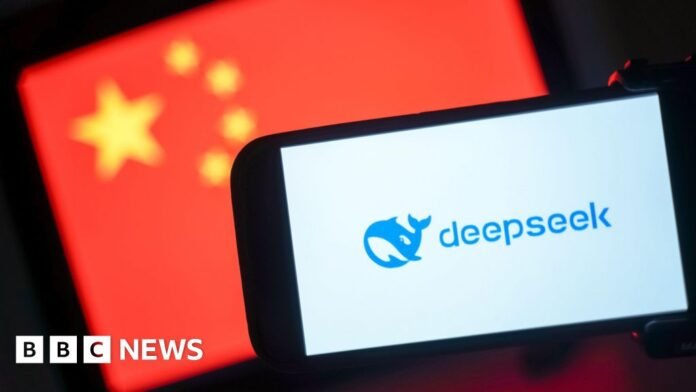The Rise of DeepSeek: A Challenge to OpenAI’s Dominance in AI
The landscape of artificial intelligence (AI) is rapidly evolving, with new players emerging to challenge established giants like OpenAI. Recently, OpenAI, the creator of the widely popular ChatGPT, has raised alarms over the swift rise of DeepSeek, a Chinese application that reportedly emulates ChatGPT’s capabilities at a significantly lower cost. This development has sparked concerns about intellectual property rights, national security, and the ethical implications of AI technology.
OpenAI’s Concerns
OpenAI has expressed frustration that its innovations are being leveraged by competitors, particularly those in China, to accelerate their own AI advancements. The company claims that DeepSeek may have utilized its models through a process known as knowledge distillation, which involves extracting knowledge from one model to enhance another. David Sacks, the newly appointed White House "AI and crypto czar," echoed these concerns, suggesting that DeepSeek’s rapid development could be attributed to the unauthorized use of OpenAI’s technology.
In a statement, OpenAI emphasized the ongoing efforts by Chinese and other companies to distill the models of leading U.S. AI firms. The organization underscored the importance of collaboration with the U.S. government to safeguard its most advanced models, indicating a growing urgency to protect intellectual property in the AI sector.
The Emergence of DeepSeek
DeepSeek’s sudden rise has raised eyebrows within the tech community. Bloomberg reported that Microsoft is investigating whether OpenAI’s data has been used without authorization in the development of DeepSeek. The app’s ability to replicate ChatGPT’s performance at a fraction of the cost has led to skepticism regarding its training methods. Naomi Haefner, an assistant professor of technology management at the University of St. Gallen, questioned whether DeepSeek truly trained its models from scratch or if it misappropriated data from OpenAI.
Crystal van Oosterom, an AI Venture Partner at OpenOcean, noted that while DeepSeek has built upon publicly available research, the ethical implications of doing so remain murky. The AI field is rife with accusations of intellectual property infringement, and the line between innovation and imitation is increasingly blurred.
National Security Implications
The emergence of DeepSeek has prompted U.S. officials to consider the national security implications of this new competitor. White House press secretary Karoline Leavitt confirmed that the National Security Council is investigating the potential risks associated with DeepSeek’s technology. This scrutiny comes in the wake of reports that the U.S. Navy has banned its personnel from using DeepSeek’s applications due to concerns over security and ethics.
Experts have raised alarms about the data safety practices of DeepSeek, particularly given that the app collects vast amounts of personal data and stores it on servers located in China. The U.S. Navy’s warning to its staff highlights the growing unease surrounding the use of foreign AI applications, especially those that may pose risks to sensitive information.
Cybersecurity Challenges
In addition to the ethical and security concerns, DeepSeek has reported being the target of cyberattacks. The company announced that it would temporarily limit registrations due to "large-scale malicious attacks" on its software. This situation raises further questions about the reliability and safety of using DeepSeek’s technology, particularly for users who may be unaware of the potential risks involved.
Conclusion
The rapid ascent of DeepSeek serves as a wake-up call for the U.S. tech industry, highlighting the need for vigilance in protecting intellectual property and ensuring ethical practices in AI development. As OpenAI and other American firms grapple with the challenges posed by emerging competitors, the future of AI will likely be shaped by ongoing debates about innovation, security, and the ethical responsibilities of technology companies. The coming months will be critical as the industry navigates these complex issues and seeks to maintain its leadership in the global AI landscape.

